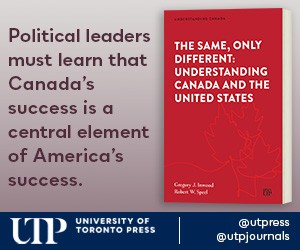My mother Anastasia is the most passionate hockey fan in our family. She emigrated to Canada from the Peloponnese region of southern Greece in 1957, when she was 17. Mom had never seen ice, or laced up skates, but fell in love with hockey.
My mother worked in a garment factory. My father Peter ran a cleaning business. Anastasia put me on skates at age four and held me by the hand on Beaver Lake in Montréal. She signed me up with the Laval Hockey Association and for a dozen years drove me a thousand miles to games and practices. I played from Novice at age 5 all the way through to Midget AAA.
I was a shooter. I liked to mimic my hockey hero, Canadiens’ forward Guy Lafleur, by rushing down the right wing and taking a good hard slap shot. Years afterward I sat with Lafleur at a breakfast meeting. It was a thrill for me. I asked him, was the rivalry with the Québec Nordiques as intense as it seemed? Lafleur confirmed it was pretty deep. Players of that generation were more passionate about their city and their jersey.
After my hockey career was over, I married and had children and moved into the neighbourhood where I grew up. The Housakos family tradition continued. Anastasia put her two grandsons on skates when they were four, and they played for the same minor hockey league at the same arenas I’d known as a boy.
I coached both my sons. It’s a tough job. Every parent thinks their kid is going to the NHL. Once I cut a player from Novice A to Novice B – these are 7-year old children – and the father said to me, “Leo, you’ve just destroyed my son’s career.” I think the best program for a minor hockey coach would be to fill the roster with orphans.
My sons ask, “Do you ever think you could’ve played pro?” No, I reply. After I badly injured my knee as a teenager, my father sat me down and said you have a choice: ride the bus in junior hockey, or pursue your studies. I chose school. Too bad it had to be a choice.
I fear Canada is losing its edge in hockey. The game is so expensive now. Gear and ice time runs to thousands of dollars a year for families. I wonder if my working class parents would’ve been able to afford the sport today. Canada as a result is not producing the hockey players we used to, and the Americans now have more minor league players than Canada! It’s hard to believe.
There is a growing number of European and American players in every NHL draft, encroaching on what used to be Canada’s game. Why don’t we have well-funded university programs like they do in the United States? The American model incorporates athletics and academics, and it works. They produce excellent, young, educated football, basketball and baseball players under similar programs. The vast majority of American Olympians are training in universities.
In Canada, we don’t have this philosophy. Our junior programs encourage 18-year olds to focus more on hockey than school. The junior hockey leagues just don’t have the same facilities, coaching and training that U.S. colleges are providing.
I didn’t want my boys to play junior hockey, but encouraged their passion for the game. That’s why they’re both playing in the United States on scholarships. My oldest son plays for the University of Maine, the youngest boy plays at a prep school in Connecticut. They both have aspirations to play pro. I have an aspiration for them to get a university degree.
Hockey teaches many lessons. You learn how to lose and improve. You learn to be accountable, without excuses. You learn hard work, focus and sacrifice. Hockey taught me how to communicate, and appreciate every team is comprised of individuals. Hockey is also laced with politics. When you are unfairly cut – and it always seems unfair – you learn adversity, and how to move on.
At 78, my mother Anastasia is still crazy about hockey. She watches every Habs game and drives hours to watch her grandsons play in the United States. We are first-generation Canadians, and second-generation hockey fanatics. It’s our game.
(Editor’s note: this commentary by Senator Housakos, former Speaker of the Upper House, was originally published April 23, 2017)









